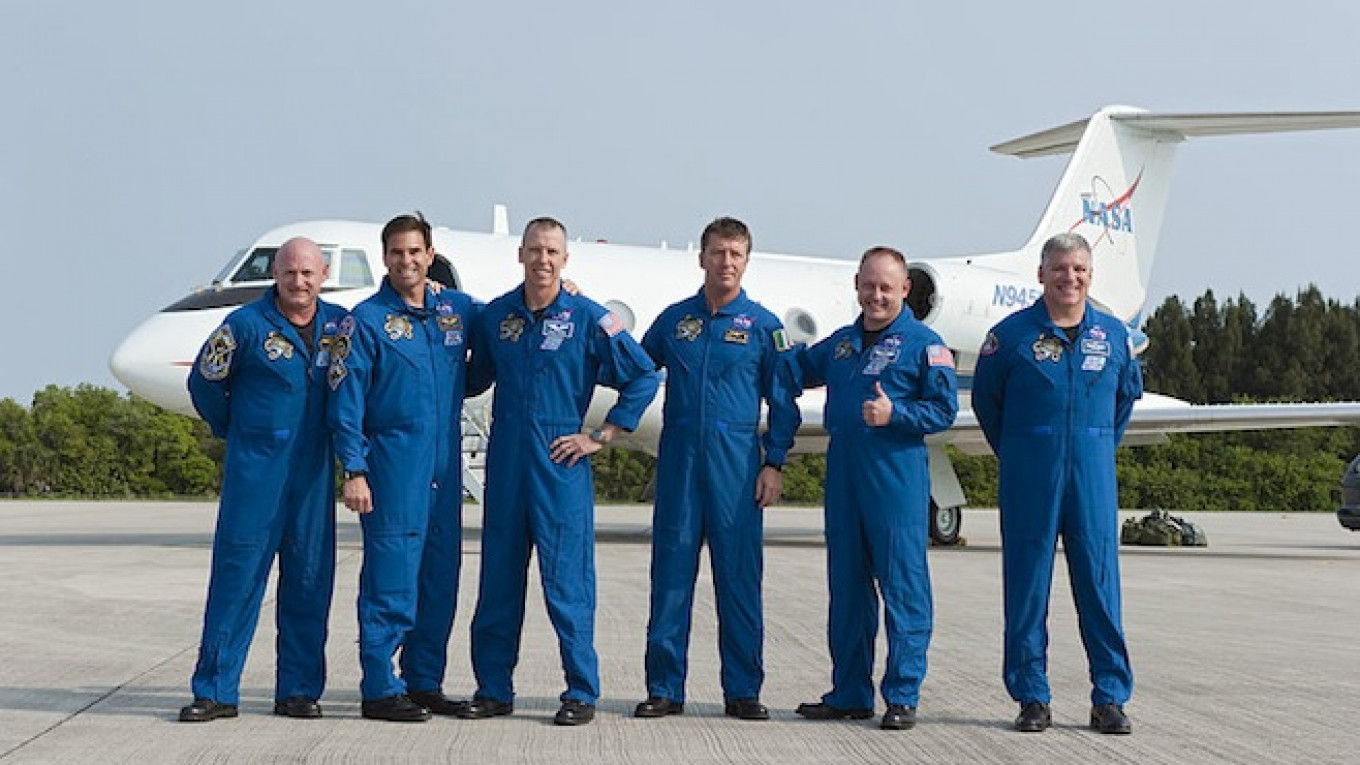Russia's space agency is planning to move training for space missions to the International Space Station (ISS) to abandoned facilities in Crimea, a senior agency official said, potentially forcing the United States to send astronauts to the territory annexed by Russia last year.
Since Washington does not recognize Russian ownership of Crimea, the move risks undermining Russia-U.S. cooperation in space.
Cosmonauts have practiced emergency landing and survival scenarios in Crimea since the early days of the Soviet space program, using the peninsula's mountains, plains and surrounding Black Sea for a variety of training exercises. In 2007, Roscosmos, the Russian space agency, moved those portions of the training program back to the main training center in Zvyozdny Gorodok ("Star City") outside Moscow.
But after Russia's annexation of Crimea from Ukraine in March last year, Roscosmos is eying a return to the region in 2016.
Yury Lonchakov, a Roscosmos official and head of Russia's cosmonaut training center, told the TASS news agency on Friday that “there is a plan next year to move ocean [survival] training to Crimea.”
The U.S. Embassy in Moscow did not respond to a request for comment on how the U.S. Government would respond to such a move. NASA's chief official in Russia, Sean Fuller, told The Moscow Times he was unaware of any notification from Roscosmos that it was being considered.
Asked how a Crimean training program would affect the agency's partnership with NASA, Roscosmos spokesman Mikhail Fadeyev told The Moscow Times, “the issue is being studied, and all decisions will be announced later.”
Global Training Effort
The Russian Soyuz spacecraft is currently the only means of reaching the ISS, and foreign astronauts must complete a Russian-designed and led training regiment to fly in the spacecraft.
Astronauts from NASA, as well as the European and Japanese space agencies, join their Russian colleagues in a global training program that spans from Zvyozdny Gorodok to Houston, Texas. But much of the training takes place in Russia under Roscosmos' tutelage.
NASA astronauts are government employees, and were Roscosmos to send an international crew to Crimea for training, it could force the U.S. space agency to choose between losing certification for its personnel to fly aboard Russian Soyuz spacecraft or giving tacit recognition to Russia's jurisdiction over the region.
NASA pays around $75 million per seat on Russian rockets under a contract set to expire in 2017. There is no other means of reaching the $150-billion space station, which NASA pays an annual $3 billion to operate.
The U.S. space agency is working with private firms in the U.S. to develop a homegrown alternative transport to the Russian Soyuz, but these replacements will not be ready to fly until late 2017 or 2018.
Perfect Training Ground
The issue of moving cosmonaut training to Crimea has popped up several times since Russia seized the peninsula last year. Lonchakov said on Friday that no action had been taken because the facilities in Crimea were not fit for use, but work to upgrade them was under way.
“During the last year we looked at the training conditions [in Crimea] and had discussions with the Black Sea Fleet Command and authorities in Sevastopol, [but] this year we are not yet ready,” he said.
Russian cosmonaut candidates who joined the ranks in 2010 and 2012 are already using the region to conduct training exercises, news agency TASS cited an unidentified source at the Yury Gagarin Cosmonaut Training Center as saying last week. The cosmonauts taking part in this training are not part of any international crews.
Lonchakov said the peninsula's importance as a training center would only expand.
“We really like the conditions in Crimea, they are similar to real ones [that Soyuz crews would face in emergency landings]. … We are working on this and plan to conduct all kinds of training in Crimea,” he said.
Contact the author at m.bodner@imedia.ru
A Message from The Moscow Times:
Dear readers,
We are facing unprecedented challenges. Russia's Prosecutor General's Office has designated The Moscow Times as an "undesirable" organization, criminalizing our work and putting our staff at risk of prosecution. This follows our earlier unjust labeling as a "foreign agent."
These actions are direct attempts to silence independent journalism in Russia. The authorities claim our work "discredits the decisions of the Russian leadership." We see things differently: we strive to provide accurate, unbiased reporting on Russia.
We, the journalists of The Moscow Times, refuse to be silenced. But to continue our work, we need your help.
Your support, no matter how small, makes a world of difference. If you can, please support us monthly starting from just $2. It's quick to set up, and every contribution makes a significant impact.
By supporting The Moscow Times, you're defending open, independent journalism in the face of repression. Thank you for standing with us.
Remind me later.


